Holds our Monthly Feature and Monthly Feature data
SafeBirth4All is promoted by a coalition of organisations including the Medical Missionaries of Mary (MMMs), the Association of Leaders of Missionaries and Religious of Ireland (AMRI) and Geneva for Human Rights. The newly launched campaign seeks to raise awareness of the wider issues of human rights and human dignity as it encompasses the realities of the experiences of women and girls who live with, or are at as risk of, obstetric fistula. It focuses on the reality that obstetric fistula is a preventable injury.
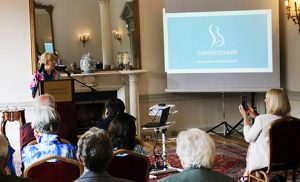
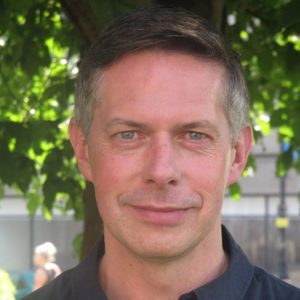
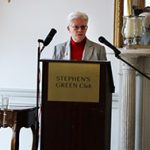
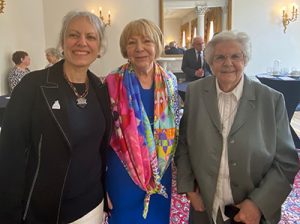
The launch began with a powerful video highlighting the stories of two women in Uganda who have lived with obstetric fistula, one for some 50 years. The video was directed and produced by Dearbhla Glynn and Patrick Daly for Yoke Productions. Speakers at the launch included Mr. Ken Gibson, CEO of the Mission to End Leprosy who outlined some of the complexities and opportunities of developing and sustaining an eradication campaign. Sr. Ursula Sharpe, Congregational leader of the MMMs talked of the pioneering work in the field of gynaecology, obstetrics and surgery of the Medical Missionaries of Mary in Nigeria and Uganda through examples of the work of Sr. Drs. Anne Ward and Maura Lynch. Toni Pyke, PhD with AMRI, talked of the need for a SafeBirth4All campaign and Edward Flynn CSSp outlined how the “Safebirth4All campaign has at its heart, human rights, prevention and a holistic approach to reintegration and rehabilitation of women”. He outlined 5 key areas where the issue of obstetric fistula needs to be mainstreamed: education, diplomatic circles, advocacy opportunities, healthcare domains, communications and media. MC for the event was Nadia Ramoutar, PhD, Communications Coordinator with the MMMs.
The event was live-streamed on Facebook Live.
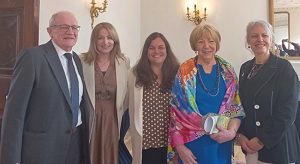
By Sr. Pauline Amulen, MMM, Lilongwe, Malawi
We visit our patients twice every week. It is always an exciting moment for the homebased care team to go and deliver their services to those in most need who are unable to reach the health centre. In every visit we often plan to visit 5 to 6 clients in a day. I began the story last month with the first visit to Sarah and her grandmother.
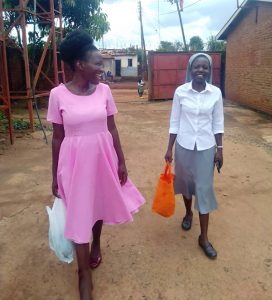 The second visit was to “Agogo” which is grandmother. When we arrived in the compound, it was all quiet with the door closed, “Agogo” was inside alone, lying on a raggy mat in a dusty room in the dark. The family members had all gone to their daily work. A neighbor having seen us stranded came to open the door for us to go in to see her. She was very delighted to hear our voices. With limited energy in her body due to hunger, she struggles to talk, and she says, “The food you gave me the last time you came helped me to gain some energy, that is why I am able to sit up, but it is now finished, and I am very hungry.” For sure, there was no sign of any food in any corner of the house when we rolled our eyes around. Her daughter later came and found we were still around, so we encouraged her to come and pick some food items for her Mam in the clinic.
The second visit was to “Agogo” which is grandmother. When we arrived in the compound, it was all quiet with the door closed, “Agogo” was inside alone, lying on a raggy mat in a dusty room in the dark. The family members had all gone to their daily work. A neighbor having seen us stranded came to open the door for us to go in to see her. She was very delighted to hear our voices. With limited energy in her body due to hunger, she struggles to talk, and she says, “The food you gave me the last time you came helped me to gain some energy, that is why I am able to sit up, but it is now finished, and I am very hungry.” For sure, there was no sign of any food in any corner of the house when we rolled our eyes around. Her daughter later came and found we were still around, so we encouraged her to come and pick some food items for her Mam in the clinic.
Thirdly we visited Anajere another “Agogo”. Agogo Anajere is in her 80s but she is getting weaker every day. When we arrived the caretaker helped her to sit up so that we could chat with her. She really can’t sit for a long time, but this day because she was enjoying our company she didn’t want to lie down again. We were rubbing her dry back and she seemed to enjoy this so much. She has always promised us that one day she will sing for us. On this particular day she said she would love to sing but she could not remember the song. The carer started a familiar hymn and we all joined in a chorus singing and clapping hands. She was so delighted to sing and never wanted to stop singing. Agogo and her carers are always happy to see us around and are very thankful for our support to her and to them and the entire family.
Next, we visited Paul who is in his late 70s. He is battling a stroke. He was excited to see us arrive in the shade outside his house where he always sits. We had a chat with him, and he was happy to speak the little Kiswahili he remembers. We offered him massage on his arms, and we encouraged him to stand and move a little. He was so collaborative to do every exercise we asked him to do, and he promised us he would continue doing exercises daily. We also discovered that he stopped taking his blood pressure drugs a year ago because at that time he felt he was fine. Without his medication his blood pressure has gone very high again. We encouraged the family to take him back to the hospital to be re assessed after which he should take the medication that he will be given daily without fail whether feeling better or not. We educated him on the implications of not taking his medication properly.
Finally, before we closed our day’s work, it was afternoon in the scorching sun, yet we had one more patient to visit in the nearby village. This village could not be accessed by car. We put our feet down and walked to that village, a 20-minute walk. Unfortunately, on arrival at the house the neighbours told us that the condition of the patient was critical and he is admitted to a local clinic. Mr. Isaac suffers from both hypertension and is a diabetic. He had a stroke and also went blind. We hope we find him home and feeling better in our next visit to him next week.
By Sr. Goretti Nalumaga, MMM
Margarida (not her real name) is 29 years old, married to ‘Joseph’. Together they have four children, all boys and one adopted girl who is Margarida’s niece. She grew up thinking that Margarida was her real mother. She is, in fact, a daughter of her younger sister who died in childbirth. The girl was told recently that Margarida was her aunt, and she was devastated.
Margarida’s last born has severe cerebral palsy and he depends on her for everything. He gets sick often and is given more attention than the other children. He is accepted by his siblings. Her husband was very supportive regardless of his little income before he left the family. He was doing casual jobs which could not sustain his family. The small business he had was not promising. He then decided to go abroad for greener pasture. He was unlucky because while there, he suffered a motor accident, and he sustained a fracture. His friends who were working with him, agreed to treat, feed, and accommodate him on condition that he would pay them back when he got better.
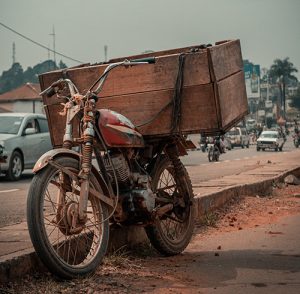
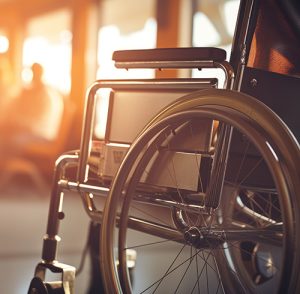
He gradually got better after some years. He started riding a “boda boda” motorcycle as before, so as to earn an income, and pay back the debt. He also tried to support his family back home, but he tried this in vain. He is now jobless and stranded. When things became worse for the husband and she could not cater for all the five children in the city, she decided to take the three sons to their paternal grandparents who had nothing and the girl to her paternal relatives who also had nothing. All the children were no longer going to school and feeling unhappy that the mother sent them away from her. They are still young and could not understand the difficult situation the mother is going through.
To make things worse, the grandparents of the children always depended on their son for nearly everything, but he was no longer supporting them. Eventually, the mother went to visit the children and the condition did not please her, so she brought all the four children back since they were no longer studying and some were sick.
The sick child had stayed with her mother because no one would accept to stay with him. When the children came back, she used the money she was saving to take them to a school but could not pay all the school fees for the three terms. So, they missed half of the second term and only one is in school now as she is struggling with rent and many other domestic needs. Through advocacy, a Sister spoke to one of our friends who managed to pay school fees for the first born who is very intelligent. He is 10 years old, in primary three and loves school. He keeps on asking the mother why they cannot go back to school while their friends near them go. When the mother prepares food, the young ones ask for more because they are not satisfied; she gives them her food and she drinks water; she sleeps on an empty stomach. When she came to visit us first to share her problems, we noticed that she had lost a lot of weight. We gave her something to eat and to take home. She looked better when she came back for the second time. The sick boy gets sick often and he has gone to the hospital three times. He has severe cerebral palsy, and no one will stay with him. She was advised by some people to leave the child somewhere or do something but would not follow their evil advice. She now feels abandoned by the family for not doing what they wanted her to do and some who could afford to support her, refused. They feel that it was her fault. When we saw how she was suffering, we decided to enrol her in the programme. Her son must be on daily medication which she cannot afford without support. We have provided nutrition and medical support. Income generating activity was going on as well, but she used some of the profit for domestic needs since the children came back to live with her. Unfortunately, the three children are no longer schooling apart from the one who was supported. The project which was providing medical support finished.
We remain grateful to our donor agencies who help us run the programme. Margarida has benefited from treatment and nutrition supplements for her child. We thank MMM leadership and all our generous friends. We are hopeful that through advocacy, we would get more help so that the remaining three children can go back to school, and the sick child continue to be treated monthly. May God bless and provide for all our needs always.
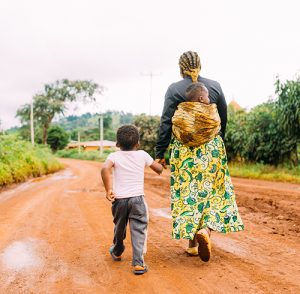
By Sisters Nilza dos Santos & Margaret Nakafu, MMM
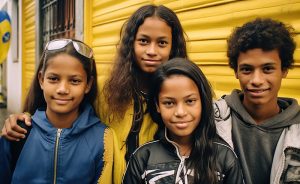 In Brazil, according to the National Youth Council created in 2005, young persons are those between 15-29 years. The Brazilian Institute of Geography and Statistics 2021 Report states that the Brazilian population is 214 million and the youth correspond to 23%, an equivalent to 47 million. The youth represent 1/3 of the economically active population. However, despite their high productivity, 27.1 million are unemployed. The alarming data reveals that a quarter of the youth neither study nor work. This leaves young people vulnerable and with increasing cases of anxiety and depression. They are also vulnerable to being recruited by gangs and using drugs.
In Brazil, according to the National Youth Council created in 2005, young persons are those between 15-29 years. The Brazilian Institute of Geography and Statistics 2021 Report states that the Brazilian population is 214 million and the youth correspond to 23%, an equivalent to 47 million. The youth represent 1/3 of the economically active population. However, despite their high productivity, 27.1 million are unemployed. The alarming data reveals that a quarter of the youth neither study nor work. This leaves young people vulnerable and with increasing cases of anxiety and depression. They are also vulnerable to being recruited by gangs and using drugs.
It is in this context that the Medical Missionaries of Mary in Salvador initiated a project to accompany and empower young people. It helps them discover their potential and foster their wholistic growth. The project is being implemented in collaboration with the Carlos Santana II College, a public college. The project team consists of two MMMs and a psychologist. They use a friendly methodology with the youth, listen and empower them. The aim of the project is to foster an integral development that awakens young people to rediscover their inner strength, have a sense of purpose in life and work towards their socio-economic, spiritual and emotional wellbeing.
The project team members meet the youth, on a weekly basis, with different themes during the sessions. The sessions are a forum to express and share their challenges, fear and hopes. Here we share the story of ‘Iris’. Iris is aged 16 and lives with her mother and stepfather in the congested neighbourhood of Nordeste de Amaralina. At the first meeting, Iris showed some resistance to the project´s approach and activities. She entered the room apathetic, sad and her face was down. She did not want to participate in the group activities. In a simple guessing game that consisted of telling one truth and two lies about oneself, Iris revealed that her truth was “I want to die”. Iris’s statement raised a lot of concern from her classmates and the project team. “What would lead such a young person to think that the truth about herself is wishing to die”?
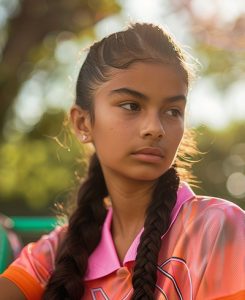
The psychologist said that “the desire for healing is the first step to be healed”. And that’s what Iris’s story is all about. The project team, in network with the school headmaster, engaged Iris in a series of individual conversations to help her to access her perception and cognitive tools, bringing about a sense of purpose. It is very important to emphasize that the management of suicidal behaviours is addressed by both professional and systematic interventions. Therefore, she was referred to another psychologist who will have the tools and the time Iris needs. Having this support, she can go through a process of healing.
In the beginning, Iris resisted going to a psychologist, with the idea that she did not need a personalised accompaniment. “The group sessions alone will help me”, she said. After much discernment, both with her and with her mother, Iris accepted to take this first step on the journey to her healing.
For some people with suicidal behaviour or thoughts, their primary desire is not death, but a different life. They seek any way to not feel the pain that consumes them. It was based on this that the case of the young Iris was handled. The project team uses a friendly approach that welcomes, listens, and accepts the young person as they are, using gentleness and compassion to offer them a space of trust in order for them to feel loved and supported and embrace the journey as they heal.
“Wherever you are, whatever you do, let there be in your heart a space for others to be, so that unafraid, they may experience themselves as loved and so be healed” (MMM Constitutions 7.3).
Once Iris felt that she was heard, accepted and loved in gentleness and compassion, she started seeing other possibilities of dealing with her pain and suffering. We hope that Iris will persevere on this journey and discover herself as loved and unique in this world, someone capable of healing others, because she has been healed.
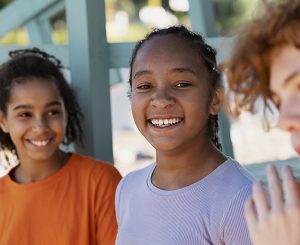
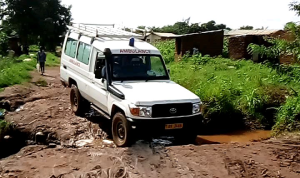
We visit our patients twice every week. It is always an exciting moment for the home-based care team to go and deliver their services to those in most need who are unable to reach the health centre. In every visit we often plan to visit five or six clients in a day. Below is a glimpse of what a day is like for us.
We start off our journey following bad roads, full of potholes, to one of the villages. We started by visiting our client who is suffering from cancer of the esophagus. She was lying on her bed, helplessly waiting for her granddaughter, Sarah, who is 12 years old and in primary school, close to our clinic.
Mrs. Chimwemwe totally depends on the help of her little grandchild, Sarah. Sarah is young, but intelligent and hardworking. She wakes up daily at 4:30 am to clean and arrange their house, prepare some food for her grandmother and then her day depends on the school timetable. Sometimes, if she is going for morning classes, she leaves for school very early for an 8am start, then when she returns home, she prepares lunch for her grandmother. After seeing her grandmother has eaten, she moves around selling groundnut powder to get some money to buy food for herself and her grandmother. On this day we met Sarah running back home from doing ” Ganyu”, short time paid labour and then leaving home again in time for her classes which were starting 15 minutes later. Sarah walks from house to house, asking people if there is anything she can do so that they pay her some money to care for her grandmother. This is her routine. She is always paid 800 Malawi kwacha after the heavy work she does, with the current economic situation, this money (about €0.50), cannot even afford one good meal for them.
It is always so much joy for Mrs. Chimwemwe to see us enter her room. Slowly as we are seated and chatting, her sad face starts relaxing and smiling by the time we depart. Whenever we are taking our leave, she says, “bye but we meet next week”. She keeps longing for the time we return to her house and the week we don’t go she feels so disappointed, and she sends her granddaughter to the clinic to send us her greetings. These greetings act as a bell to remind us to visit her! Occasionally, her health condition is so bad, and she is unable to share food with her little granddaughter. In the beginning Sarah’s grandmother’s health really affected Sarah’s academic journey. Sarah often slipped out of the classroom whenever she thought of her grandmother but now, she is picking up. She only returns home when her classes have ended.
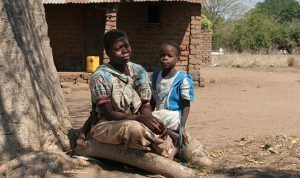
Secondly, we visited “agogo” which is ‘grandmother’. But, you know, I think I will leave this story for another day. There is so much to tell about a day of outreach. We will continue this story next time….
By MMM Sisters, Fuka, Nigeria

Being Missionaries allows us to be channels of light in the path of others that they might discover their God-giving self and gain the freedom they long for.
Sheko, 9 and Jami, 6 (not their real names), are both girls and siblings. They are among our little friends here in Fuka, Niger State, Nigeria and they have sickle cell anemia. They come to our clinic for their monthly follow-up care. They live in one of the neigbouring communities with their parents who are both farmers.
In most families here, some children are kept at home to do farm work while others are sent to school. The choice and decision of who among the children goes to school, often rests solely on the head of the family, the father. Mothers practically have little or no say in such decisions and often, children have no option than to go along with the decision of their father.
For Sheko and Jami, they both desire to live and lead a normal life like many other children, have access to basic needs as children and go to school.
However, their father Mr. Tanko, believes that girls are not meant for school and sending them to school is only a waste of resources. Moreover, he claims that girls will misbehave when they go to school and besides, he is already spending a lot on their medical bills. On the other hand, their mother is a submissive wife and although she wanted her two girls to go to school, she would not want to upset her husband but accepted his decision about their children. Consequently, Sheko and Jami seemingly resented their father’s decision and felt probably that he didn’t love them as his children. Both became unhappy, unwell and visited the facility more often in pain crisis. The mother too became burdened with the care of the two and worried a lot about them.
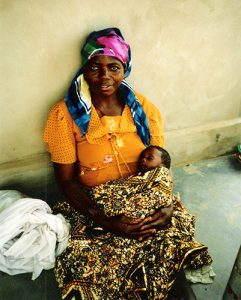
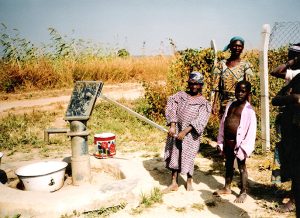

When we noted the two girls reporting to the clinic often in pain crisis and their mother looking stressed out, we became interested in the girls and gave them more attention. Eventually, the girls opened up to us and their mother equally shared her frustration caring for them. She expressed her desire to see her children going to school like many other children but was worried about how to convince her husband.
The sisters and one of the staff held several one -on- one sessions with the girls and their mother and then involved them in group sessions with other parents. Eventually, the sisters and two other staff members visited the family. We had a fruitful session. At the end of our time with the family, the father was convinced of the importance of sending the girls to school and was grateful for our visit. He thanked us for helping him to realize the importance of sending his female children to school. He gave us his word that the girls will go to school and henceforth, he will give equal opportunity to his children and no longer choose among them.
 Currently, Sheko amd Jami have both started schooling at St. John’s Nursery and Primary school. Since then, there is a drastic change in their attitude towards their father, they are both happy, healthy and excited about their new life in school. Their mother looks happier and more confident about her two girls. She shares how they are doing well in school and even teaches the other little children in the family when they return from school. When we asked Sheko and Jami what they would like to be when they grow up, Sheko said she will be a medical doctor so that she could care for other sick children. Jami on the other hand said she would like to be a health worker in the hospital too.
Currently, Sheko amd Jami have both started schooling at St. John’s Nursery and Primary school. Since then, there is a drastic change in their attitude towards their father, they are both happy, healthy and excited about their new life in school. Their mother looks happier and more confident about her two girls. She shares how they are doing well in school and even teaches the other little children in the family when they return from school. When we asked Sheko and Jami what they would like to be when they grow up, Sheko said she will be a medical doctor so that she could care for other sick children. Jami on the other hand said she would like to be a health worker in the hospital too.
Today, both no longer report to the clinic in pain crisis, they are both healthy and their mother no longer had to carry either of them on her back to the clinic looking sad and stressed. They are able to communicate a little now in English. We are privileged to witness this transformation and pray that they will continue to grow to become who they want to be in life.
Do you know the Sisters? Would you like to know more? We are starting a new way for you to get to know more about MMM and the Sisters.
Soon, MMM will be launching a new initiative through the miracle of technology, a series of podcasts that will allow you to hear the Sisters as if you were sitting down for a chat, featuring interviews with MMM Sisters. Our founder Mother Mary Martin was a true innovator in technology during her lifetime and found as many ways possible to share the MMM healing charism, so we believe if she was alive today she would have loved an MMM Podcast series.
Some of these stories were recorded many years ago, and the Sisters have since gone to their eternal reward, but most are new interviews, with MMM Sisters telling about why they decided to become a missionary, and why this kind of life was attractive to them and what they pray for in our world today. Each interview is as unique as the MMM Sister herself.
They describe their journeys to far off places and all the wonderful people they have met and who are now part of their life’s journey. So, watch out for the new podcast series coming soon. It will be available on the MMM website – mmmworldwide.org – as “MMM Sisters’ Stories Podcast – Caring Hands and Healing Hearts.”
It will also be posted on our social media channels so be sure to follow us on Facebook, Instagram or Twitter for links. Also, it will be hosted where major Podcasts are found. We will keep you posted on when it starts!
We are grateful to the Sisters for sharing their stories and to the people who have helped us record their stories over the years.

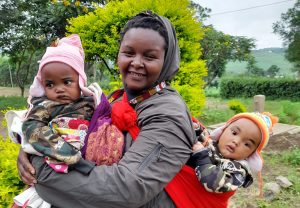
MMM will be part of a global initiative to celebrate the UN International Day to End Obstetric Fistula on 23rd May. Tragically, child birth in Sub-Saharan Africa still accounts for 70% of maternal deaths in the world. While some mothers may not die, many are wounded or injured in a horrific way that could be avoided. Fistula has not been a major issue in the Western world for the past 100 years so we know it can be overcome for all women.
Obstetric Fistula refers to a rupture or hole in the birth canal created by prolonged labour without prompt medical intervention, such as a Caesarean Section. An estimated 2 to 3 million women and girls in developing countries suffer physically, mentally and emotionally because of this as they have urine and or faeces leaking uncontrollably from their bodies.
This can be avoided by antenatal care and our goal is to educate communities about this. MMM are also active in repairing and preventing Obstetric Fistulas in Itam, Nigeria and were, in the recent past, in Kitovu Hospital, Uganda for many years! Sr. Anne Ward MMM and Sr. Maura Lynch MMM were pioneers in this area as surgeons for many years.
We will be hosting and participating in online and in-person events in May to raise awareness and funds for this important cause. We are also involved in humanitarian efforts to see Safe Childbirth acknowledged as a human right globally as it currently is not. MMM are partnering with other Religious Congregations and also with Fr Edward Flynn, Spiritan, to create a collaborative effort on this important initiative.
MMM hosted the AMRI Daring to Hope exhibition on Saturday 27th January. There was a full house at The MMM Auditorium in Drogheda, Ireland. Sr Brigid Corrigan gave a talk on memories of Mother Mary and other pioneering Sisters. The event also honoured the anniversary of Founder Mother Mary’s death.
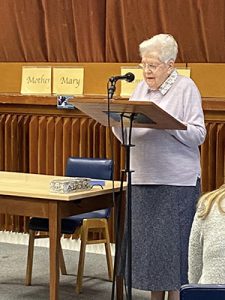
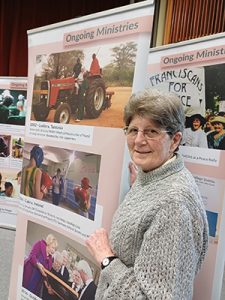
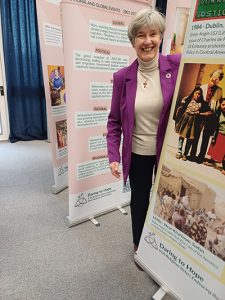
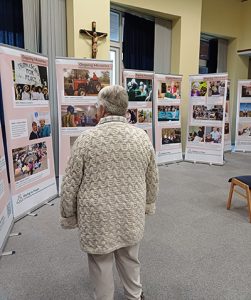
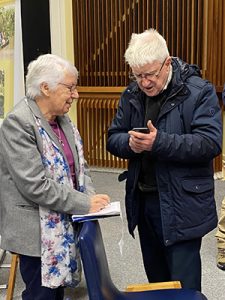
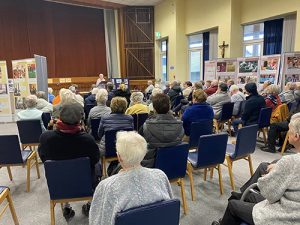
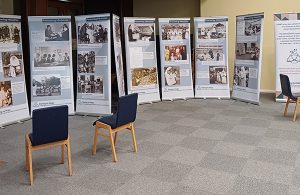
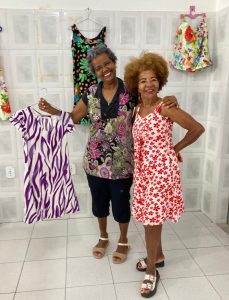
By Srs. Margaret Nakafu, MMM and Maria José da Silva, MMM
Sowing seeds of hope and joy, and the fruits of being empowered with practical skills for the journey…
It is with a great sense of joy and hope that the Medical Missionaries of Mary in Salvador rejoices with more than 100 women who were empowered with skills in the courses of cut and sewing, catering, hairdressing, manicure and pedicure, art craft and baking. These courses were offered during 2023 in collaboration with the Parish Pastoral Center (Casa da Juventude Anna Sironi).
MMM Salvador is working in collaboration with three women volunteers who are entrusted and committed to the daily management of Casa da Juventude Anna Sironi. In a society that tends to find more reasons to exclude those who are poor, vulnerable and different, Casa da Juventude Anna Sironi offers a space where each woman feels accepted and loved as she is. It is a place where each woman rediscovers her inner wisdom and freedom to share her life experiences, to be creative, learn new skills, make supportive friendships, grow in self-confidence and know that she is respected.
Sr. Maria Jose da Silva MMM facilitated group therapy sessions. These sessions have created sacred grounds where the women have an experience of mutual trust and support. Appreciating this environment of mutual trust and unconditional love, the women shared their fears, aspirations, their pain and search for healing. They shared their experiences of God’s healing love. Group therapy sessions were indeed circles of healing where the women felt empowered and helped increase their self-esteem. During the initial sessions, some women shared that they were suffering from depression, and they were on medication. In the group therapy sessions, these women experienced themselves as supported, listened to and respected. These positive and affirming experiences encouraged the women to become committed to their healing processes. Towards the end of the courses, most women expressed deep gratitude for having discovered their potential and having developed their sense of purpose and self-worth.
Several women who benefited from the catering course are already earning an income from the acquired skills. They prepare and sell snacks. From the cut and sewing group, many women are making dresses for themselves and family members. All these achievements bring joy and encouragement to us and to the collaborators.
In addition to offering our skills and creating circles of healing with the women, MMM Salvador also contributes with financial support to the activities of the Casa da Juventude Anna Sironi. The funds are used to buy materials for the courses and to pay course instructors. We are grateful to our donors and the prayers from our MMM family. Let us continue sharing with joy and hope what our healing charism has as one of the most creative values is the way to empower many women throughout our ministries.
The Christmas Craft Fair proceeds are going towards this project.
